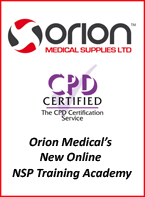Thank you to our Premium sponsors:
|
|
Could you sponsor DrugWise Daily? Please Email Harry Shapiro to discuss |
|
|
Dear readers, sponsors and advertisers, thank you for all your support this year. We will see you again on January 9th 2026. Merry Christmas and a Happy New Year from Jackie and Harry.
In date order, Monday to Friday
Dame Carol Black appointed as independent advisor on drugs
Dame Carol Black GBE has been appointed to the role of independent advisor to the UK government on drugs for a 3-year term until November 2028 | Home Office, Department of Health and Social Care, Sarah Jones MP and Ashley Dalton MP, UK
Scotland officials weigh up smoking ban exception for supervised crack use
Move follows increase in drug users switching from injecting heroin to smoking crack in Glasgow and Edinburgh | Guardian, UK
One in eight of 14- to 17-year-olds in Great Britain say they have used nicotine pouches
Survey adds to experts’ concern about addiction risk and highlights support for plan to ban sales to under-18s | Guardian, UK
Project ADDER programme data: January 2021 to March 2025
Project Addiction, Diversion, Disruption, Enforcement and Recovery (Project ADDER thereafter) was a programme led by the Home Office and the Office for Health Improvement and Disparities (OHID), with support from other Government departments. This note provides a summary of the activity of the Project ADDER programme from its launch in November 2020 to its closure in March 2025 | Home Office, UK
Voice of the Voiceless: How we worked together to create materials to help reduce stigma for people receiving opioid substitution therapy in pharmacies
In 2024 we worked together with a graphic designer to co-produce a booklet that aims to: ‘reduce stigma for people who receive opioid substitution treatment; empower them in their interactions in pharmacies; and foster mutual compassion and respect between pharmacy staff and people who receive OST.’ | AntiStigma Network, UK
‘We need better evidence to treat cannabis use disorder’
Monika Halicka, Francesca Spiga, and Jelena Savović from the Bristol Evidence Synthesis Group identify four priorities for research into cannabis use disorder | SSA blog, UK
Three in four UK adults embrace moderate drinking over Christmas
Moderation is in this Christmas, with nearly three in four (73%) UK adult drinkers intending to moderate their drinking over the festive period, according to a new survey by Drinkaware | Drinkaware, UK
Britons reported to be drinking less, as data shows consumption at record low
More moderate alcohol habits rather than total abstention appear to have driven fall | Guardian, UK















